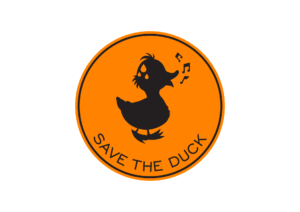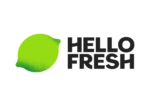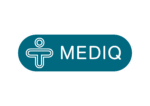
Save The Duck strengthens supply chain transparency and sustainability strategy with Sedex
Save The Duck, an Italian outerwear and lifestyle brand and a pioneer in animal-free fashion, has transformed its approach to due diligence thanks to the Sedex platform.
Through assessment tools, audits, and supplier engagement programs, the company has strengthened its sustainability strategy, improved supply chain transparency, and launched innovative initiatives such as the Digital Product Passport.
The Challenge
Save The Duck was founded with a clear mission: to create animal-free products, without feathers, fur, or other animal-derived materials, and to develop a business model that pursues high standards of social and environmental impact. But, with international growth, supply chain management became increasingly complex.
Key issues to address:
Regulatory and market innovation: preparing for the introduction of the Digital Product Passport (DPP), which requires complete traceability of materials and processes.
Fragmented information: lack of a single platform meant that social and environmental data was collected inconsistently, making it difficult to integrate into decision-making processes.
Transparency towards customers: need to provide concrete evidence of social and environmental responsibility, in addition to third-party certifications.
Managing human and environmental risks: ensuring respect for workers’ rights and ethical standards throughout the supply chain.
The Solution: Sedex as a Strategic Partner
To face these challenges, Save The Duck adopted a structured and scalable approach through Sedex, integrated with its own corporate standards such as the Code of Interdependence, the Product Restricted Substances List (PRSL), and the Material Selection Standard:
- Onboarding and SAQ: Tier 1 suppliers were registered on the Sedex platform and completed the Self-Assessment Questionnaire, providing key data on working conditions, human rights, and environmental impacts.
- SMETA Audit: Independent audits conducted to assess real risks and define improvement plans with suppliers.
- Supplier Code of Conduct: Integrated into contracts, in line with ILO Conventions and UN guidelines on human rights.
- Risk analysis: Assessment based on Sedex indicators, useful for mapping geographic and sectoral issues.
- Digital Product Passport: The information and data collected with Sedex are used to build the DPPs of Save The Duck products, guaranteeing the customer transparency on the origin of materials, production processes and ethical standards.
The Results
Thanks to the partnership with Sedex, Save The Duck has achieved significant progress:
- Increased transparency and coverage: Unprecedented visibility into the supply chain and social and environmental risks: in 2024, 32 audits were conducted on 41 Tier 1 suppliers, covering almost all the spending of the Save The Duck and Pro-Tech brands (and 3 suppliers for Ganesh).
- Transparency and accountability: No cases of forced labour detected in 2024; all Tier 2 suppliers rated as “acceptable”.
- More mature dialogue with suppliers: Sedex data and SMETA audits facilitated constructive engagement, moving from simple control to collaboration for continuous improvement.
- Sustainability integration: Supply chain data is now an integral part of the company’s environmental, social and governance strategies.
- Digital Product Passport: Save The Duck is among the first Italian brands to integrate the DPP, offering customers a transparent and credible traceability tool.
- Organisational efficiency: Leaner and more consistent processes, reducing duplication and increasing data quality.
What made this success possible?
- Established platform: The Sedex ecosystem, already known to thousands of global vendors, has lowered adoption barriers and provided a common language with vendors.
- Risk-based approach: targeted audits on Tier 1 and Tier 2 to focus resources where risks were highest.
- Integration with company policies: the Code of Interdependence and internal standards have strengthened the commitment required from partners.
- Innovation and transparency: the use of Sedex data for the Digital Product Passport strengthened the brand’s reputation and customer trust.
“Sedex has allowed us to make supply chain management more transparent and structured. We have a clearer view of the risks linked to individual suppliers, but also greater awareness of their maturity and knowledge of the social and environmental issues related to sustainability.”
Aurelia Saggioro, Sustainability Specialist, Save The Duck
The Next-steps:
Save The Duck intends to continue its path toward sustainable growth with targeted actions:
- Extend SMETA audits to a larger number of suppliers and production sites.
- Make the most of Sedex trend analyses to monitor progress over time.
What advice does Save The Duck has for other businesses?
“Once you have mapped your supply chain, I would recommend not stopping at simply asking suppliers to complete a self-assessment questionnaire, but it is essential to continue with more in-depth monitoring by implementing a SMETA audit program conducted directly at production sites.”
Aurelia Saggioro, Sustainability Specialist, Save The Duck
- Start with an established platform with existing supplier ecosystems – implementation friction decreases significantly when suppliers already understand the framework and assessment approach.
- Allocate resources based on risk so investment aligns to impact.
- Integrate HRDD into business practices, not as a parallel sustainability track.
- Set clear compliance targets and measure progress to drive accountability and enable stakeholder communication.
Ready to transform your supply chain?
Save The Duck chose Sedex to strengthen monitoring of social and environmental risks in its global supply chain.
Are you ready to do the same across your business? Contact our team today to learn how our solution can accelerate your compliance program while building strategic supplier partnerships.



